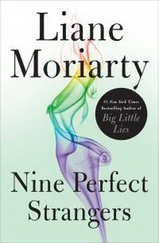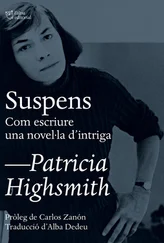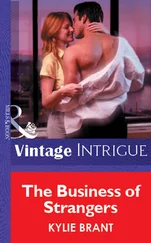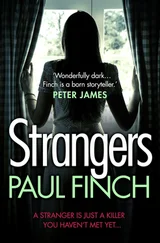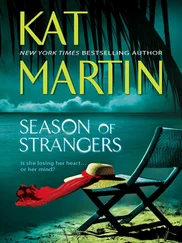Guy Daniel Haines is the most significant architect yet to emerge from the American South. With his first independent work at the age of twenty-seven, a simple, two-story building which has become famous as “The Pittsburgh Store,” Haines set forth principles of grace and function to which he has steadfastly held, and through which his art has grown to its present stature. If we seek to define Haines’ peculiar genius, we must depend chiefly upon that elusive and aery term, “grace,” which until Haines has never distinguished modern architecture. It is Haines’ achievement to have made classic in our age his own concept of grace. His main building of the widely known Palmyra group in Palm Beach, Florida, has been called “The American Parthenon”…
An asterisked paragraph at the bottom of the page said:
Since the writing of this article, Mr. Haines has been appointed a member of the Advisory Committee of the Alberta Dam project in Canada. Bridges have always interested him, he says. He estimates that this work will occupy him happily for the next three years.
“Happily,” he said. How had they happened to use such a word?
A clock was striking 9 as Guy’s taxi crossed the main street of Houston. Guy had found Owen Markman’s name in a telephone book at the airport, had checked his bags and gotten into a taxi. It won’t be so simple, he thought. You can’t just arrive at 9 in the evening and find him at home, and alone, and willing to sit in a chair and listen to a stranger. He won’t be home, or he won’t be living there anymore, or he won’t even be in Houston anymore. It might take days.
“Pull up at this hotel,” Guy said.
Guy got out and reserved a room. The trivial, provident gesture made him feel better.
Owen Markman was not living at the address in Cleburne Street. It was a small apartment building. The people in the hall downstairs, among them the superintendent, looked at him very suspiciously and gave him as little information as possible. No one knew where Owen Markman was.
“You’re not the police, are you?” asked the superintendent finally.
Despite himself, he smiled. “No.”
Guy was on his way out when a man stopped him on the steps and, with the same air of cautious reluctance, told him that he might be able to find Markman at a certain cafe in the center of town.
Finally, Guy found him in a drugstore, sitting at the counter with two women whom he did not introduce. Owen Markman simply slid off his stool and stood up straight, his brown eyes a little wide. His long face looked heavier and less handsome than Guy remembered it. He slid his big hands warily into the slash pockets of his short leather jacket.
“You remember me,” Guy said.
“Reckon I do.”
“Would you mind if I had a talk with you? Just for a little while.” Guy looked around him. The best thing was to invite him to his hotel room, he supposed. “I’ve got a room here at the Rice Hotel.”
Markman looked Guy slowly up and down once more, and after a long silence said, “All right.”
Passing the cashier’s desk, Guy saw the shelves of liquor bottles. It might be hospitable to offer Markman a drink. “Do you like Scotch?”
Markman loosened up a bit as Guy bought it. “Coke’s fine, but it tastes better with a little something in it.”
Guy bought some bottles of CocaCola, too.
They rode to the hotel in silence, rode up in the elevator and entered the room in silence. How would he begin, Guy wondered. There were a dozen beginnings. Guy discarded them all.
Owen sat down in the armchair, and divided his time between eying Guy with insouciant suspicion, and savoring the long glass of Scotch and CocaCola.
Guy began stammeringly, “What—”
“What?” asked Owen.
“What would you do if you knew who murdered Miriam?”
Markman’s foot thudded down to the floor, and he sat up. His frowning brows made a black, intense line above his eyes. “Did you?
“No, but I know the man who did.”
“Who?”
What was he feeling as he sat there frowning, Guy wondered. Hatred? Resentment? Anger? “I know, and so will the police very soon.” Guy hesitated. “It was a man from New York whose name was Charles Bruno. He died yesterday. He was drowned.”
Owen sat back a little. He took a sip of his drink. “How do you know? Confessed?”
“I know. I’ve known for some time. That’s why I’ve felt it was my fault. For not betraying him. ” He moistened his lips. It was difficult every syllable of the way. And why did he uncover himself so cautiously, inch by inch? Where were all his fantasies, the imagined pleasure and relief of blurting it all out? “That’s why I blame myself. I—” Owen’s shrug stopped him. He watched Owen finish his glass, then automatically, Guy went and mixed another for him. “That’s why I blame myself,” he repeated. “I have to tell you the circumstances. It was very complex. You see, I met Charles Bruno on a train, coming down to Metcalf. The train in June, just before she was killed. I was coming down to get my divorce.” He swallowed. There it was, the words he had never said to anyone before, said of his own will, and it felt so ordinary now, so ignominious even. He had a huskiness in his throat he could not get rid of. Guy studied Owen’s long, dark attentive face. There was less of a frown now. Owen’s leg was crossed again, and Guy remembered suddenly the gray buckskin work shoes Owen had worn at the inquest. These were plain brown shoes with elastic sidepieces. “And—”
“Yeah,” Owen prompted.
“I told him Miriam’s name. I told him I hated her. Bruno had an idea for a murder. A double murder.”
“Jesus!” Owen whispered.
The “Jesus” reminded him of Bruno, and Guy had a horrible, an utterly horrible thought all at once, that he might ensnare Owen in the same trap that Bruno had used for him, that Owen in turn would capture another stranger who would capture another, and so on in infinite progression of the trapped and the hunted. Guy shuddered and clenched his hands. “My mistake was in speaking to him. My mistake was in telling a stranger my private business.”
“He told you he was going to kill her?”
“No, of course not. It was an idea he had. He was insane. He was a psychopath. I told him to shut up and to go to hell. I got rid of him!” He was back in the compartment. He was leaving it to go onto the platform. He heard the bang of the train’s heavy door. Got rid of him, he had thought!
“You didn’t tell him to do it.”
“No. He didn’t say he was going to do it.”
“Why don’t you have a straight shot? Why don’t you sit down?” Owen’s slow, rasping voice made the room steady again. His voice was like an ugly rock, solidly lodged in dry ground.
He didn’t want to sit down, and he didn’t want to drink. He had drunk Scotch like this in Bruno’s compartment. This was the end and he didn’t want it to be like the beginning. He touched the glass of Scotch and water that he had fixed for himself only for politeness’ sake. When he turned around, Owen was pouring more liquor into his glass, continued to pour it, as if to show Guy that he hadn’t been trying to do it behind his back.
“Well,” Owen drawled, “if the fellow was a nut like you say—That was the court’s opinion finally, too, wasn’t it, that it must have been a madman?”
“Yes.”
“I mean, sure I can understand how you felt afterwards, but if it was just a conversation like you say, I don’t see where you should blame yourself so awful much.”
Guy was staring at him incredulously. Didn’t it matter to Owen more than this? Maybe he didn’t entirely understand. “But you see—”
“When did you find out about it?” Owen’s brown eyes looked slurry.
Читать дальше




